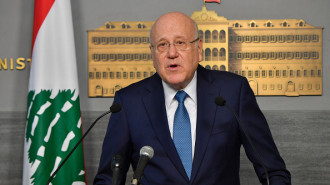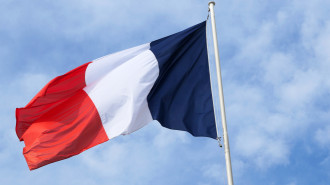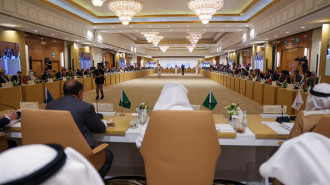'Indefinite' US arms embargo on Iran unlikely to pass as China and Russia hint veto
'Indefinite' US arms embargo on Iran unlikely to pass as China and Russia hint veto
US Secretary of State Mike Pompeo is urging the UN Security Council to extend an arms embargo against Iran indefinitely, as Russia and China express opposition.
5 min read
Pompeo is pushing for an extension of the arms embargo [Getty]
US Secretary of State Mike Pompeo is urging the United Nations Security Council (UNSC) to indefinitely extend an arms embargo on Iran before it expires in October, signalling an increasingly hostile relations between the two countries.
Secretary of State Mike Pompeo circulated a draft resolution to the 15-member council that would indefinitely extend the arms embargo on Tehran.
Russia and China, who both back Iran, have already expressed their opposition to the resolution, and given the two powers' veto powers, the US bid for an extension is unlikely to pass.
"Don't just take it from the United States, listen to countries in the region. From Israel to the Gulf, countries in the Middle East - who are most exposed to Iran's predations - are speaking with one voice: Extend the arms embargo," Pompeo told a virtual Security Council meeting.
Washington has steadily ramped up pressure on Iran over its civilian nuclear power developments, which the US and Israel allege is cover for a weapons programme.
The arms embargo under the 2015 nuclear deal brokered by former US president Barack Obama is set to end in October.
In 2018 one of Donald Trump's first acts as president was to quit the nuclear deal and steadily push increasingly crippling sanctions on Iran.
Speaking of US' intention to extend the arms embargo, Russia’s UN Ambassador Vassily Nebenzia called the policy "a maximum suffocation policy".
"The task is to achieve regime change or create a situation where Iran literally wouldn't be able to breath. This is like putting a knee to one's neck," he said in an apparent reference to George Floyd, a Black man in Minneapolis who died after a white police officer knelt on his neck.
The Security Council had met on Tuesday to discuss a report by UN Secretary-General Antonio Guterres that found cruise missiles used in attacks on oil facilities and an airport in Saudi Arabia last year were of "Iranian origin".
Saudi Arabia's UN Ambassador Abdullah Al-Mouallimi said Russia and China had been "sympathetic" to Riyadh's situation, but when it came to the proposal to extend the arms embargo on Iran they "presumably had scores to settle with the United States".
"We're trying to separate the two issues in our discussions with them, which... are open, are friendly discussions, are based on the good relations that we enjoy with both countries," he told a news conference later on Tuesday.
|
The draft resolution has been in the works for a number of months, with the US floating its intention among UN voting powers.
"The international community in general - and the UN Security Council in particular - are facing an important decision: Do we maintain respect for the rule of law, or do we return to the law of the jungle by surrendering to the whims of an outlaw bully?" said Iran's Foreign Minister Mohammad Javad Zarif.
US accusations
The US has repeatedly accused Iran of violating key sections of the nuclear deal.
In April Pompeo was said to be preparing a legal argument to allow the US to remain part of the Iran nuclear accord, despite President Donald Trump's abandonment of the deal.
The change in tune came as the US appears more determined than ever to isolate the country and pressure the UNSC to extend an arms embargo on Tehran, and re-introduce harsh sanctions in the wake of the novel coronavirus.
Pompeo will approve a plan under which the US would legally claim to remain a "participant state" in the nuclear accord Trump rubbished, for the sole purpose of invoking a "snapback" that would restore UN sanctions on Iran which were in place before the accord.
US administration officials have been circulating a new resolution in the Security Council that would prevent countries from exporting conventional arms to Iran after the current ban expires in October, The New York Times reported.
Read more: Russia and China vie for influence in US-dominated Middle East arms market
Pompeo's strongarm move means that even if the embargo was not renewed, the US could still exercise its right - as an original member of the agreement - to force through broader sanctions on Iran without the support of all member states.
Pompeo will have an uphill battle, as the UK, France and Germany have said they would not back US efforts to unilaterally trigger a return of all UN sanctions on Iran.
Nuclear deal dead in the water
The UN atomic watchdog agency in June said Iran has continued to increase its stockpiles of enriched uranium and remains in violation of its deal with world powers.
The International Atomic Energy Agency reported the finding in a confidential document distributed to member countries and seen by AP at the time.
The agency said that as of 20 May. Iran’s total stockpile of low-enriched uranium amounted to 1,571.6 kilograms (1.73 tons), up from 1,020.9 kilogrammes (1.1 tons) on Feb. 19.
Iran signed the nuclear deal in 2015 with the United States, Germany, France, UK, China and Russia.
Known as the Joint Comprehensive Plan of Action, or JCPOA, it allows Iran only to keep a stockpile of 202.8 kilogrammes (447 pounds).
The International Atomic Energy Agency reported that Iran has also been continuing to enrich uranium to a purity of 4.5 per cent, higher than the 3.67 per cent allowed under the JCPOA.
The nuclear deal promised Iran economic incentives in return for the curbs on its nuclear programme. Since Trump pulled the US out of the deal, Iran has been slowly violating the restrictions.
It is now in violation of all restrictions outlined by the JCPOA, which Tehran says it hopes will pressure the other nations involved to increase economic incentives to make up for hard-hitting sanctions imposed by Washington after the US withdrew.

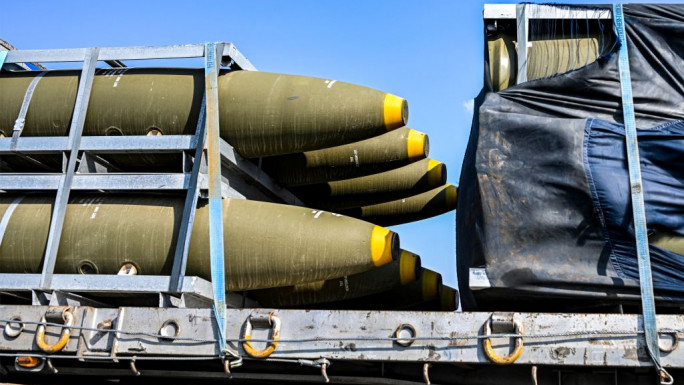

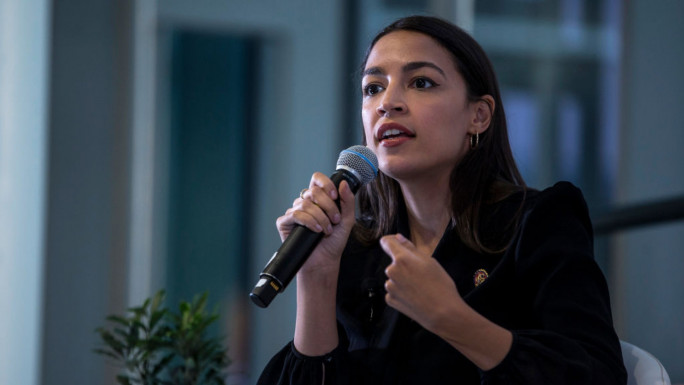
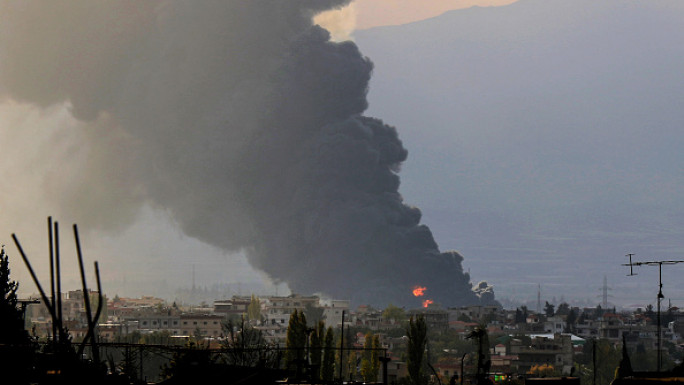
 Follow the Middle East's top stories in English at The New Arab on Google News
Follow the Middle East's top stories in English at The New Arab on Google News
